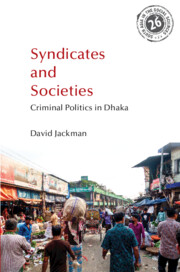5. - Fighting for Carrots
Published online by Cambridge University Press: 31 August 2024
Summary
Will we really allow people to block our work? We’re the ones who work for our rice. We can't sit silently. Shouldn't we fight for our own money?
—Rakib, jhupri labourerAs months passed at the bazaar my claims of conducting research without seeming to do much were for many of the jhupri labourers really a distraction from a more obvious reality: I was unemployed. The group were then impressed by my swift change in status in subsequent years evidenced by a business card, jumping from a hanger on who drank too much tea to a ‘professor’, as they generously framed various post-doctoral positions. This admiration was accompanied by requests to detail my income and expenditure in minutia, starting of course with salary, tax and housing costs and later, at my own insistence, the much-dreaded nursery fees. Jobs are hard to come by in Dhaka and anything vaguely formal a distant dream for the jhupri labourers. Government positions in particular are rare and much coveted, often requiring extortionate bribes to acquire, similar to how jobbers once mediated work in industry. Many municipal sweepers in Dhaka, for example, are known to have paid up to 10 lakh taka to gain a job, bringing debts but conferring stability of income and other opportunities. A younger labourer in the jhupri group, clearly exaggerating, once claimed to me while looking at the road being cleaned that ‘even the sweepers on this lane are government people, but only us labourers don't have papers.’
The jhupri group have few avenues for getting salaried jobs. Being the sons of labourers, fishermen, small-scale farmers or faded one-time santrashis and having spent years apart from them, means family is rarely a source of strength. Few here can rely on family capital, security, contacts or opportunities. Whatever the jhupri labourers have, they have it despite this background. As children they learned to fend for themselves. The friendships formed here were not only their fictive bhais and schoolmates to play and joke with, but something even closer, brothers to survive with. Viewed from the side of the jhupri lane, their world then is much smaller, framed by the corners of the bazaar. It is here that they can earn, and here that they seek opportunities.
- Type
- Chapter
- Information
- Syndicates and SocietiesCriminal Politics in Dhaka, pp. 129 - 149Publisher: Cambridge University PressPrint publication year: 2025

